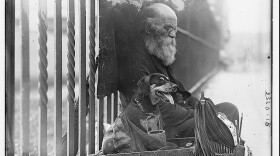Under a decades-old Michigan law, "a person found begging in a public place" is considered a "disorderly person" and can be arrested and prosecuted as such.
Today, a federal appeals court struck down that law saying that begging, panhandling, or asking for money in a public place is protected as free speech under the First Amendment.
Michigan Attorney General Bill Schuette argued that the state's law was constitutional because it seeks to protect the public from fraud. Panhandlers are sometimes not who they say they are and often use the money they receive for alcohol or drugs, he argued.
The court said if that is the point of the law, the law should be more specific in that regard:
Michigan’s interest in preventing fraud can be better served by a statute that, instead of directly prohibiting begging, is more narrowly tailored to the specific conduct, such as fraud, that Michigan seeks to prohibit.
The ACLU of Michigan first brought a suit against the state law in September 2011 on behalf of Grand Rapids residents James Speet and Ernest Sims. The two were "repeatedly arrested or ticketed by police for violating the state’s blanket ban on begging in public," according to the ACLU.
The ACLU published this video of Ernest Sims explaining his position:
http://youtu.be/smeF6BjWC8k
The case has not been without its bumps and bruises
After a lower court ruled against the panhanding law a year ago, James Speet was arrested the next day for... panhandling.






